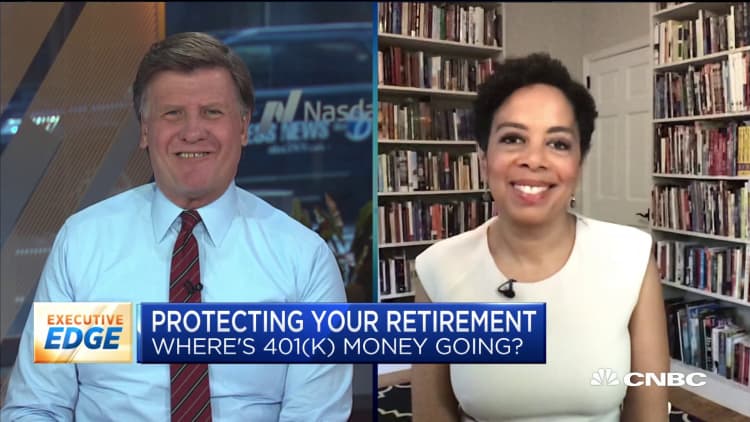Word on the street was that the stock market was immune to the coronavirus pandemic. We wished.
Stocks have been gyrating this week and last on news that virus rates could surge as businesses around the country re-open and social distancing practices are relaxed.
Since the start of 2020, the S&P 500 Index is now down nearly 7% and the Dow Jones Industrial Average has cratered by 11.5%.
With no end in sight for this public-health crisis, and questions lingering over whether life will ever go back to the way it was, you might be nervous about the fate of your money.
For those nearing retirement or another due date, like sending a child to college or gathering a down-payment on a house, the volatility can be especially painful.
More from Personal Finance:
Stashing cash? Savings interest rates sink
How to make your money work harder in the coronavirus crash
These banks are offering coronavirus financial aid
Yet, if the pandemic has taught investors anything, it's that they can't predict what's going to happen to their portfolio next. Their best bet is to hope that what's been true over the past century hasn't changed: Over the long-term, stocks become more valuable.
A $10,000 investment in 1990, split between stocks (70%) and bonds (30%), would have been worth more than $128,500 last week, according to data provided by Morningstar Direct.
So does it really matter that it sank to $114,000 at the end of March?
"Those with high balances have remained calm and have stayed focused on their long-term goals rather than flee from the markets," said Eric Stevenson, the president of Nationwide Retirement Plans.
Trying to time the market can cost you.
Let's say you had a $1 million portfolio, again split between U.S. stocks (70%) and bonds (30%), on Jan. 1 of this year, at which point news of the coronavirus was just starting to trickle out of China.
By Monday, March 23, your savings would be down to about $780,000. Ouch. You might have been tempted to get out.
Yet, if you'd moved to cash on that day, you'd have missed the massive gains the market saw the very next day, on Tuesday, March 24, when the Dow Jones Industrial Average had its biggest one-day spike since 1933.
And that portfolio, as a result, was back up to more than $830,000.
"Recoveries can come in fits and starts," said Rob Williams, vice president of financial planning at Charles Schwab.

Williams provided some data to prove his point: Over the last 20 or so years, the S&P 500 produced an average annual return of around 6%. But if you missed the best 20 days in the market over that time span, by, for example, moving out in declines, and then reinvesting later, your average annual return would shrivel to 0.1%.
Despite the unprecedented times, some things never change: If investors can't tolerate losses, they'll also miss out on gains.
"Pain is a sign you're investing well," said Allan Roth, founder of financial advisory firm Wealth Logic in Colorado Springs, Colorado.
The pain rarely lasts for too long. Even aggressive, stock-heavy portfolios took just around two years to fully recover from the 2007-2008 financial crisis, Charles Schwab found.
It can feel impossible to imagine a different reality than the one we're engulfed in. Yet we've been hit with disasters and devastation before, and the market has always bounced back.
Why give up now?


